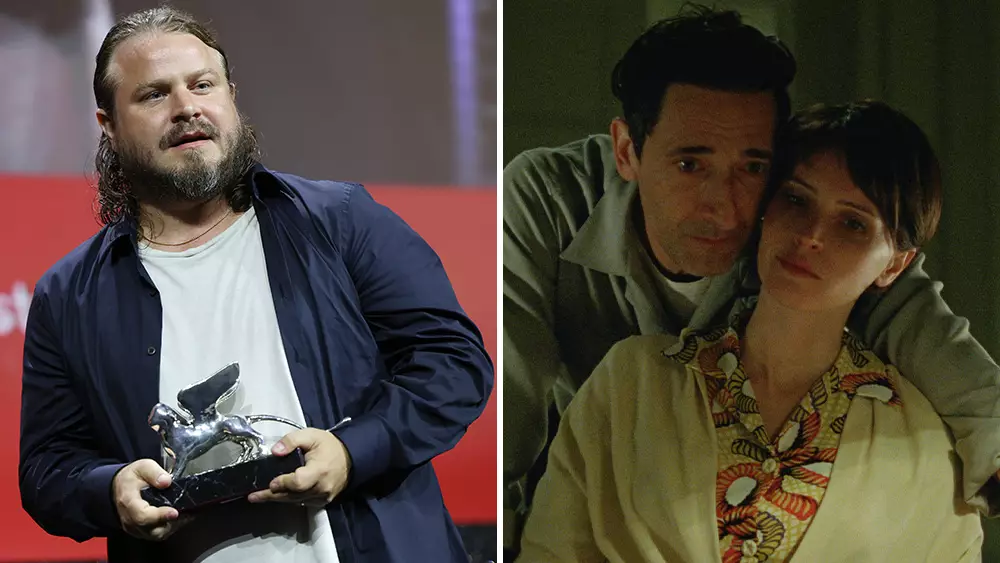In the realm of independent cinema, the glimmering accolades of award seasons often obscure the harsh realities that filmmakers face. Brady Corbet’s latest work, *The Brutalist*, has garnered critical acclaim and received multiple nominations; however, it highlights an unsettling truth: behind the artistic triumphs, many filmmakers, including Corbet, grapple with financial instability. His candid discussion on Marc Maron’s WTF podcast shed light on the paradox of artistic recognition versus economic viability, making us reconsider the sustainability of independent filmmaking.
Despite the ten Oscar nominations for *The Brutalist*, Corbet disclosed an astonishing truth—he made “zero dollars” from his last two films, a phenomenon not unique to him. His predicament is emblematic of a much broader issue in the independent film community where filmmakers often receive critical acclaim yet fail to secure financial remuneration. This irony dovetails with Corbet’s assertion, “I’ve spoken to many filmmakers that have films that are nominated this year that can’t pay their rent.” It showcases the precariousness of relying on recognition as a substitute for financial stability.
What emerges from Corbet’s experience is a broader commentary on how the film industry operates. There exists a paradox where the commitment to ‘create art’ is often pitted against the necessity to earn a livelihood. As festival circuits pressurize filmmakers into a continuous cycle of promotion and travel, financial compensation becomes an afterthought. In a stark revelation, Corbet noted he hadn’t earned any income for months due to the relentless nature of press tours, a fate that many directors share.
Corbet described the promotional cycle as an “everything all at once” experience, emphasizing how exhausting and time-consuming it can be. He likened it to “a six-month interrogation,” hinting at not only the mental fatigue but also the drain it imposes on personal creativity and potential new projects. The demanding nature of promotional tours often prevents filmmakers from pursuing other work opportunities during a time when they desperately need income.
The industry’s relentless push for content, paired with promotional commitments, highlights the dissonance between artistic endeavors and financial realities. While studio filmmakers may have larger budgets and built-in marketing strategies, independent artists are often left to navigate this treacherous landscape alone. They must be both creators and marketers, stretching their time and resources thin, all while hoping to secure a future for their craft.
In his podcast interview, Corbet touched on themes surrounding male ego and the intersections of art and legacy present in his work. Such themes hint at deeper societal constructs that govern how art is valued. The valorization of art in our culture often masks the financial hardships that creators endure, leading to a perception that a successful film equates to financial stability. However, Corbet’s experience is a stark reminder that this is not universally true.
Former collaborator Natalie Portman’s tribute to Corbet emphasizes the importance of his artistic vision amidst the pervasive fatigue of franchise filmmaking. Indeed, *The Brutalist* stands as a testament to a different kind of storytelling that seeks to challenge mainstream norms. However, the question lingers: can such art exist sustainably in today’s economic environment? It’s a dilemma that many creatives face—how to innovate while addressing the ever-looming specter of financial survival.
As the accolades pour in for *The Brutalist*, the conversation surrounding independent filmmakers and their economic challenges requires renewed urgency. Brady Corbet’s plight illustrates a critical need for systemic change in how the film industry compensates and supports its artists. From reconsidering promotional responsibilities to addressing fair pay for independent filmmakers, the industry must evolve.
In a landscape dominated by massive studios and algorithm-driven content, prioritizing artistic vision and supporting filmmakers like Corbet can lead to a more balanced, equitable ecosystem for storytelling. The disconnect between artistry and economic sustainability is not merely a personal struggle; it is a call to action for an entire industry to reevaluate its values and structures, ensuring that the voices of independent filmmakers contribute to the cultural tapestry without sacrificing their livelihoods.
